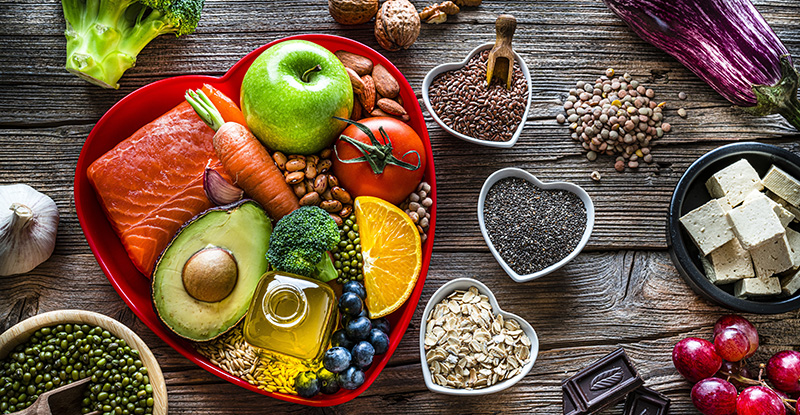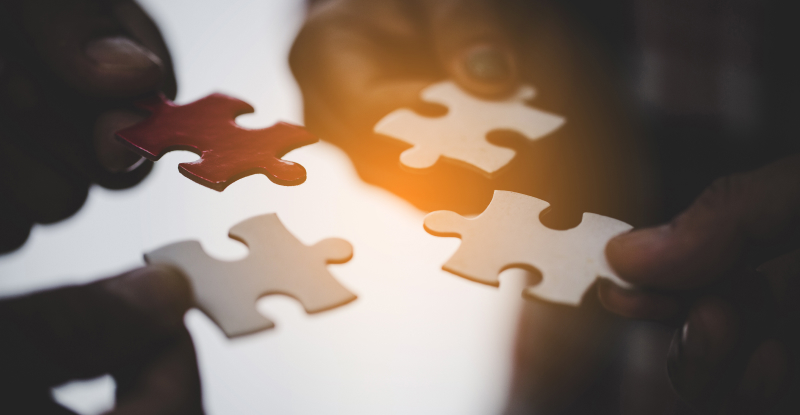
In our podcast episode, Nicole Porter discusses with Vince Kanasoot, communications specialist with CPABC, her advice on achieving proper nutrition and the impact it has on our mood and overall wellbeing. Part of our Coffee Chats with CPABC podcast series.
We’ve all heard that it’s what’s on the inside that counts. And when it comes to getting healthy, this saying couldn’t be more accurate. If you’re fueling your body (and brain) with the nutrition it needs, you’ll have better odds of feeling your best inside and out. Good food equals good mood…and good everything else.
Unfortunately, when it comes to reaching physical goals such as weight loss, many people make the outside the priority. They focus on external results (ie. the number on the scale) rather than what they’re putting inside their bodies or how their insides are functioning. As a result of having these priorities backwards, many do more damage than good and therefore struggle with sleep, and have low energy, anxiety, depression, cravings, and other imbalances. This isn’t a coincidence – if you’re not treating your insides well, your body and mind can pay the price.
The good news is, fueling yourself with the right nutrition doesn’t have to be complicated. Here are some of the common questions I get and the simple solutions I offer:
What kind of diet should I be on?
People often ask me about the benefits of going vegan, vegetarian, pescatarian, gluten-free, keto, paleo, etc. Everybody is different, and every body is different, which means there’s no one diet that works for every person and lifestyle. What your body needs day to day can differ as well. But whichever path you choose, these three words are key: Eat real food.
Try to stick to real, naturally occurring food. This includes vegetables and clean sources of protein, whether you choose to get it from plants or animals. Anything that has added hormones, pesticides, antibiotics, or a ton of extra and artificial ingredients to make up for things like fat and flavour, will not serve you well. The cleaner the food, the better it is for you, your body, and your brain.
What are the top foods you recommend?
As I mentioned, vegetables are important, as are clean sources of protein. For those choosing plant-based proteins, I recommend products like tofu, tempeh, spirulina. Beware that many meat substitute products that simulate meat flavours and textures are heavily processed and contain artificial ingredients and other additives. This can make it harder for your body and your trillions of cells to digest food and turn into the energy you need to function.
Healthy fats are also essential. Our brains consist of 60% fat and therefore need healthy fat in order to optimally function. Some excellent sources include fish, nuts, avocado, seeds, eggs, and oils such as olive, canola, hemp seed, and flax seed.
In addition, while water is not technically food, I can’t stress enough the importance of proper hydration. Every single cell in your body needs water and the lack of it is highly linked to digestive issues, fatigue, poor sleep, hormone imbalance, weight gain, and mood disorders. The exact amount of water will vary by person but generally speaking, we should be aiming for 10-12 cups per day.
Are low carb diets good?
Carbs are an important way for your brain to get the glucose it needs for energy. People who are on low carb diets often don’t feel on top of their game, and amongst other things, can suffer from effects like bad memory, moodiness, and lack of clarity in their thinking.
But it’s important to understand the difference between carbohydrates. Lower starch carbs such as vegetables and fruits should be chosen often and more so over higher-starch carbs like pasta, bread, potatoes, and rice.
That isn’t to say that everyone needs to stop eating sandwiches and pasta. But they need to eat these foods in moderation because most people are eating more higher-starch carbs than necessary, which contributes to digestive issues, weight gain, and fatigue. It’s also important to note that although foods like sweet potatoes and yams are naturally-occurring, they are still higher in starch, so limit these accordingly.
Are low-fat diets healthy?
When it comes to brain health, low-fat diets aren’t ideal either, especially when taken to an extreme. Our bodies and brains need fat to optimally function. But they need the right fats. Good fats include foods like avocado, nuts, seeds, salmon, or other naturally-occurring foods. You also aren’t committing a crime against your body if you eat butter (it’s a better choice than processed margarine!) or you keep the skin on the chicken once in a while. Why? Because these foods are naturally occurring.
In addition, you should be cautious of foods that claim to be low fat or fat-free, because this often means that other ingredients have been added to make up for the lack of taste. For example, a product may be marketed as fat-free, but it may be high in sodium. Or it could contain “natural flavours” or artificial sweeteners such as aspartame. I would rather someone have a higher fat, natural product than a lower fat product with artificial ingredients.
What are your tips for weight loss?
I use a framework of managing 10 habits to achieve sustained weight loss. But first and foremost, people need to shift the way they think about losing weight.
Firstly, stop dieting. Society is desperate to lose weight and feel better in their bodies. And everyone deserves that feeling and freedom. But going to extremes – cutting calories, skipping meals, eating too much or too little of specific nutrients – can put stress on the body, the brain, and the cells that are working hard to keep you alive. Ironically, this stress can prevent weight loss.
Secondly, pay more attention to how your insides are functioning and less to the number on the scale or how many calories you’re eating. When your insides are functioning properly, your body has a chance to land at a healthy weight, and most importantly, stay at a healthy weight.
Finally, know that you can change your habits. Weight loss can be a mind game. Ask anyone who has been dieting for years. But people can change. I see it every day. Remember this: It doesn’t matter what you did. It matters what you do.
Are dark chocolate and wine good for you?
Generally speaking, the darker the chocolate, the better it is for you. And the same goes for the drier the wine, because that typically means it’s lower in sugar – although there are other factors involved, including the climate and process used in producing the wine.
That said, I still would not recommend having a piece of dark chocolate and a glass of wine every day. Wine and chocolate are not the ideal fuel for optimizing brain health, building immunity, or keeping balanced blood sugar. Chocolate and wine are also slippery slopes, meaning many people find it difficult to stop at one piece of chocolate or one glass of wine.
You also need to be honest about whether that need for wine is actually a need for sugar. Sugar cravings – whether they are for chocolate, cookies, wine, alcohol or other things – are usually a sign of imbalance in the body. The good news is that it can be addressed with proper nutrition, mindfulness, and a stress-managed lifestyle.
At the end of the day, it’s important for us to treat our bodies respectfully. Our bodies are constantly making adjustments in order to keep us alive. But when we push ourselves to extremes by overeating, eating too little, mindlessly eating, eating the same foods every day, or consuming the wrong foods altogether, we add unwanted stress to our nervous systems, hormones, organs, and cells. This ultimately contributes to weight gain, anxiety, fatigue, cravings, digestive issues, and so on.
So make it a priority to look after your insides. Give them the respect that they give to you. Don’t spend your time trying to improve a number on the scale. Instead, focus on nourishing your cells, your organs, your hormones, your nervous system, and your brain. Over time, the feeling of improved digestion, better sleep, less sugar cravings, increased energy, better mood, less anxiety, more energy, better skin, and the subsequent weight loss will hopefully be much more addictive than the sugar, caffeine, or other ingredients you think you can’t live without!
We will all be in better shape – literally – when we care more about our insides than our outsides.
Nicole Porter is a stress coach, nutritionist, and wellness educator who helps busy professionals mindfully master The Top 10 Healthy Habits required for optimal health, mindset and productivity.



